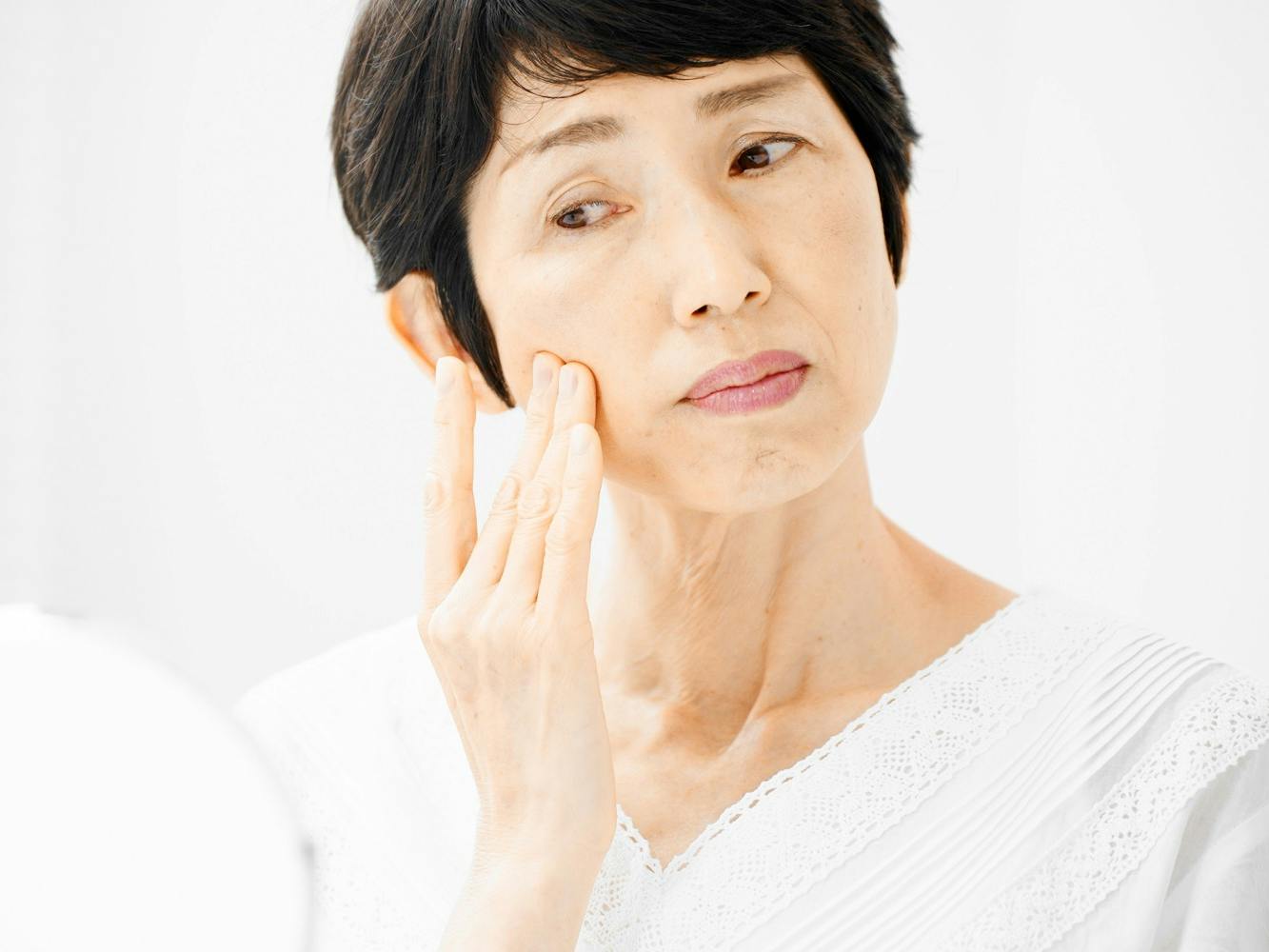
When wintertime skin feels dry and itchy, a few easy changes to your routine will bring relief and keep your skin healthy.
Mon-Thur 9am-7pm | Fri 9am-6pm EST
This winter, are you eagerly dreaming of spring or enjoying snowy walks, hot chocolate, and cozy chats around a fireplace? Whether you revel in cooler temps or can’t wait for them to end, there’s one part of you that probably prefers warmer weather: your skin.
When colder, drier air hits in the winter and your house’s heating system dries out the air inside, your skin can get drier, too. Less humidity means that moisture evaporates more easily from the skin, leaving it drier – and likely to get scaly, flaky, or itchy. In fact, itchy dry skin can be so bad, it might wake you up at night.
Drier skin doesn’t just feel bad, but it can be unhealthy, too. Your skin is your barrier to the outside world, so if it cracks, scales, or flakes from dryness, it can allow infections into your body. Stopping the dryness feels great and it can actually reduce your risk of getting sick, too. If you needed an excuse for a little pampering, now you have one!
Good winter skin care is extra important for seniors. Since skin tends to get thinner and drier as we get older, winter’s effects can be more harsh. And if you have a skin condition like eczema or psoriasis, which already makes your skin red and itchy, you need to take extra care in winter.
Learn about developing eczema as an adult.
Fortunately, it’s easy to give your skin some TLC this winter season. All it takes is a few tweaks to your regular routine.
Take cooler, shorter, baths and showers
A steamy, hot shower feels like a luxury on a cold day, but it can make dry skin worse. Try switching to lukewarm water and keep your time in the water short: five minutes is ideal, ten minutes maximum.
And while it might sound a little gross, less washing in winter is actually good for your skin. The only areas of your body that need regular, thorough cleaning are the underarms, groin, and buttocks. Unless you’re working up a sweat, the rest of the body doesn’t need daily soaping, especially in winter. If you love to indulge in long soaks or bubble baths, try to save them for spring or summer when the air is warmer and more humid.
Use gentle soaps and cleansers
Bar soaps may make your skin feel squeaky clean, but many of them are too drying. Foaming cleansers can be drying, too. Your goal is to feel clean without stripping all the oil from your skin – and maybe even picking a cleanser that puts moisture back in. Look for liquid cleansers or bar soaps that say “gentle” and “moisturizing” on the label. And use less. You don’t need a lot of lather to get clean.
When you get out of the shower or bath, try not to rub your skin roughly with a towel. Rubbing can irritate dry skin. Instead, use a soft towel to gently blot your skin until it’s just damp.
Switch to thicker moisturizers
If you haven’t been moisturizing your skin regularly, now’s a good time to start. And if you have been moisturizing but with a lightweight lotion, you might want to switch to a heavier cream or ointment in the winter.
Apply a moisturizer right after your bath or shower, while your skin’s still a little damp. That’s important, since these products work by sealing water into your skin.
The American Academy of Dermatology recommends looking for a moisturizing cream or ointment with one or more of these ingredients:
- Jojoba oil
- Dimethicone
- Glycerin
- Hyaluronic acid
- Lactic acid
- Lanolin
- Mineral oil
- Petrolatum
- Shea butter
Tip: To give your skin a break from drying ingredients and possible irritants, pick a moisturizer that’s alcohol- and fragrance-free. “Unscented” is not the same thing. It’s confusing, but unscented products may contain a scented ingredient along with chemicals that hide its odor. So fragrance-free products may be gentler on your skin.
Give hands, feet, and lips some extra care
It’s wise to wash your hands more during the winter when colds, flu, Covid, and other respiratory viruses are circulating. But “if you’re washing your hands many times a day and using hand sanitizer, you’re going to irritate your hands and they’ll get red, dry, flaky,” Jeffrey Weinberg, MD, a clinical professor of dermatology at the Icahn School of Medicine at Mount Sinai, NYC, told The New York Times.
Try these tips for happier hands this winter:
- Wear gloves or mittens outdoors in the cold
- Every time you wash your hands, slather them with hand cream
- Wear waterproof gloves when washing dishes or using harsh cleaning supplies
For dry feet, you can treat yourself to a special foot moisturizer. Some even come with their own disposable booties to help it stay put and soak in. Or you can just rub a thick moisturizer on your feet and then cover them with cotton socks for the same effect.
Finally, keep your lips soft and prevent chapping with petrolatum (also called petroleum jelly) balms and ointments. Keep a tube in your pocket so you can reapply after eating, drinking, or anytime you need it. Be careful about lip balms that make your lips feel tingly, as those can be drying.
Dress for skin comfort
Some types of clothing can feel uncomfortable on winter dry skin. Wool might feel itchy, and some synthetics like nylon can have chemicals in them that might irritate sensitive skin. The solution is easy: Put on a layer of cotton – like a cotton T-shirt – between you and the itchy fabric. Silk works well too, if you want to splurge.
If your skin is feeling uncomfortably dry, try putting on looser clothes that don’t rub and chafe. And consider switching to gentle, fragrance-free laundry products or a detergent that’s labeled hypoallergenic.
Read about preventing hypothermia and other tips for winter safety.
Increase the humidity
Combat dry air in your house by increasing the humidity. You can try putting a portable humidifier in the rooms you spend the most time in, like your bedroom or home office to help keep your skin more comfortable. Or try the old-fashioned method of placing a dish of water near your radiator. (Just don’t put water near self-standing electric radiators or space heaters! That would be risky.)
Other simple ways to add moisture to air include hanging your wet laundry to dry indoors rather than putting it in the dryer, or boiling a pan of water on the stove (but never leave it unattended!).
When to see a doctor
If you try these tips and your skin still feels uncomfortably dry, is cracking or bleeding, or is itching enough to keep you up at night, it’s time to see a doctor about it. A dermatologist can assess what’s wrong and provide you with stronger moisturizers or other treatments to help. Your dermatologist can also confirm that your dry skin is just from cold, dry winter air. It’s good to rule out other causes, like side effects from a medication you’re taking or a symptom of eczema, psoriasis, or even diabetes or kidney disease. A dermatologist can help you figure it out and get the right care.
Will Medicare cover it?
Medicare will cover a dermatology visit to treat skin issues like irritation, psoriasis, or eczema. A Medicare Advantage plan may offer even more help. Many Advantage plans provide discounts or allowances for over-the-counter drugstore treatments and moisturizers. To compare plans in your area, check out our easy-to-use Find a Plan tool.
Additional resources
- ClearMatch Medicare: Find a Medicare Plan
- American Academy of Dermatology: Dermatologists’ Top Tips for Relieving Dry Skin
- American Academy of Dermatology: Your Winter Skin Survival Kit
- Columbia University Irving Medical Center: A Dermatologist’s Guide to Healthy Winter Skin
- New York Presbyterian: 10 Tips for Protecting Your Skin in the Cold Weather
- The New York Times: How to Take Care of Your Skin in the Fall and Winter



